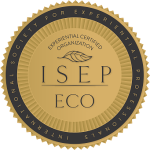Caron Philadelphia's services include evaluations, intensive outpatient programs, individual and family counseling, trauma services, Recovery Support Services, family education and support groups.
Philadelphia Outpatient Addiction Care | Drug & Alcohol Treatment
We provide comprehensive outpatient addiction and behavioral health treatment for teens and adults. Our evidence-based programs, including intensive outpatient treatment, trauma-informed therapy, and family counseling, provide personalized support for lasting recovery.
Call Caron PhiladelphiaCaron Philadelphia Addiction Treatment Center Details
Caron Philadelphia offers a range of outpatient services designed to support individuals and families at every stage of recovery. With programs like intensive outpatient treatment (IOP), trauma therapy and family counseling, our center provides flexible, evidence-based care that accommodates the demands of everyday life.
Patients benefit from our board-certified licensed therapists and have access to psychiatric evaluations and medication management when needed. Our recovery-focused programs emphasize practical skills, emotional growth and long-term support to help individuals build and sustain lasting recovery.
Insurance
Caron Philadelphia Programs
Comprehensive Drug and Alcohol Assessments
A thorough assessment of the patient's emotional, behavioral, and environmental health, including their physical/medical history, gives staff the information necessary to recommend next steps. An attending psychiatrist is available for evaluation and medication management when indicated.
Treatment for Substance Use Disorder
Intensive Outpatient Program (IOP): This co-ed program is designed for adults (age 18 and above) who are coming from the community, detox, or residential treatment. The IOP offers structure with flexibility so that patients can keep their work and/or school and personal schedules while in treatment. An experienced outpatient therapist leads three group therapy sessions weekly:
- Psychoeducation about addiction, prevention, and recovery
-
Education on family systems, healthy boundaries, effective communication, coping, and other critical skills
-
Experiential and process-based therapeutic techniques
The program also includes individual therapy sessions as clinically indicated. Caron Philadelphia's medical director provides psychiatric evaluations and medication management as needed.
Young Adult Virtual Blended Outpatient Program: This group offers a supportive, inclusive, virtual setting designed to help individuals aged 16-20 overcome substance use disorders. This 12-week program meets three times a week and provides evidence-based, neurorestorative therapies, peer connection, and personalized strategies delivered through a trauma-focused lens to foster recovery and build a healthier, substance-free future - all from the comfort of home.
In addition, the family will receive support and peace of mind through scheduled coaching sessions and routine monitoring of their loved-one.
Recovery Maintenance Group: Adult patients learn coping skills, good self-care, and how to deal with emotions and solve problems in everyday life as a way to further facilitate long-term sobriety.
Individual therapy: With one-on-one sessions, patients receive support and guidance tailored to their needs. The therapist guides the patient as they work through issues related to substance use disorder and co-occurring disorders that may be impacting their recovery.
Call now for more information about treatment for substance use disorder.
Trauma Services
Adult trauma-focused group: The group therapy approach to treating trauma is supported in the research as it allows participants a sense of commonality, which we know is a central healing component. Group members become empowered as they combat shame and find value and acceptance along with new insights, skills, and behaviors. Patients focus on trauma's effect on their lives and how it may intersect with other behaviors, including substance use. Psychoeducation, expressive art, and trauma-informed experiential therapy provide a safe and holistic approach to treatment.
Individual therapy: This may be included in a patient’s treatment plan as a stand-alone component or as part of a patient’s trauma group programming. Our trauma clinicians are certified trauma professionals or certified clinical trauma professionals. Eye movement desensitization reprocessing (EMDR) is one of the trauma-focused interventions utilized.
Family Treatment
Family/couples counseling: Family members and the patient can set up sessions with a therapist to identify, discuss, and address issues related to how the family has been impacted by the patient’s addiction and to learn healthy ways of coping and relating, including setting boundaries and self-care.
Recovery Support
Recovery Services: Individualized, clinically driven services, including My Recovery Connection, for patients and their families as offer support for the transition to their lives in recovery.
Building and Maintaining Recovery Virtual Support Group: This group focuses on practical skills for living in recovery. Held virtually, the group is open to individuals in all stages of recovery who want to build and grow their recovery, including:
- Caron outpatient and inpatient alumni who are looking for additional support and connection
- Patients who have completed other treatment programs
Prevention Services
The Student Assistance Program: This program provides comprehensive, customizable drug, alcohol, and nicotine prevention services and healthy living programs for elementary and high school students as well as parents, caregivers, and youth-serving professionals.
Payment Options
At Caron, we believe that everyone deserves access to treatment. We are in-network with several national and local insurance companies and offer options for individuals and families who do not have insurance. To view the list of insurance accepted, click here.
Caron Philadelphia Highlights
Our facility offers thoughtfully designed spaces for group therapy, individual counseling and family sessions, creating an atmosphere that promotes healing and connection. The warm, supportive environment helps patients and their loved ones feel safe and at ease, as they focus on building a strong foundation for long-term recovery.
With a holistic approach and access to psychiatric services like medication management, Caron Philadelphia encourages individuals and families to build healthier, more fulfilling lives.
Caron Philadelphia Frequently Asked Questions
Caron’s outpatient treatment programs are designed to treat addictions, including drug and alcohol.
At Caron, we believe that everyone deserves access to treatment. We partner with several national and local insurance companies and offer options for individuals and families who do not have insurance. To view the list of insurance accepted, click here.
Our empathetic experts in Greater Philadelphia help you navigate recovery
Caron Philadelphia Awards

Caron Philadelphia Resources
Take the next step:
Start with an online form
-
Caron in Pennsylvania
1-800-854-6023 -
Caron in Florida
1-800-221-6500 -
Breakthrough at Caron
1-800-213-7834











